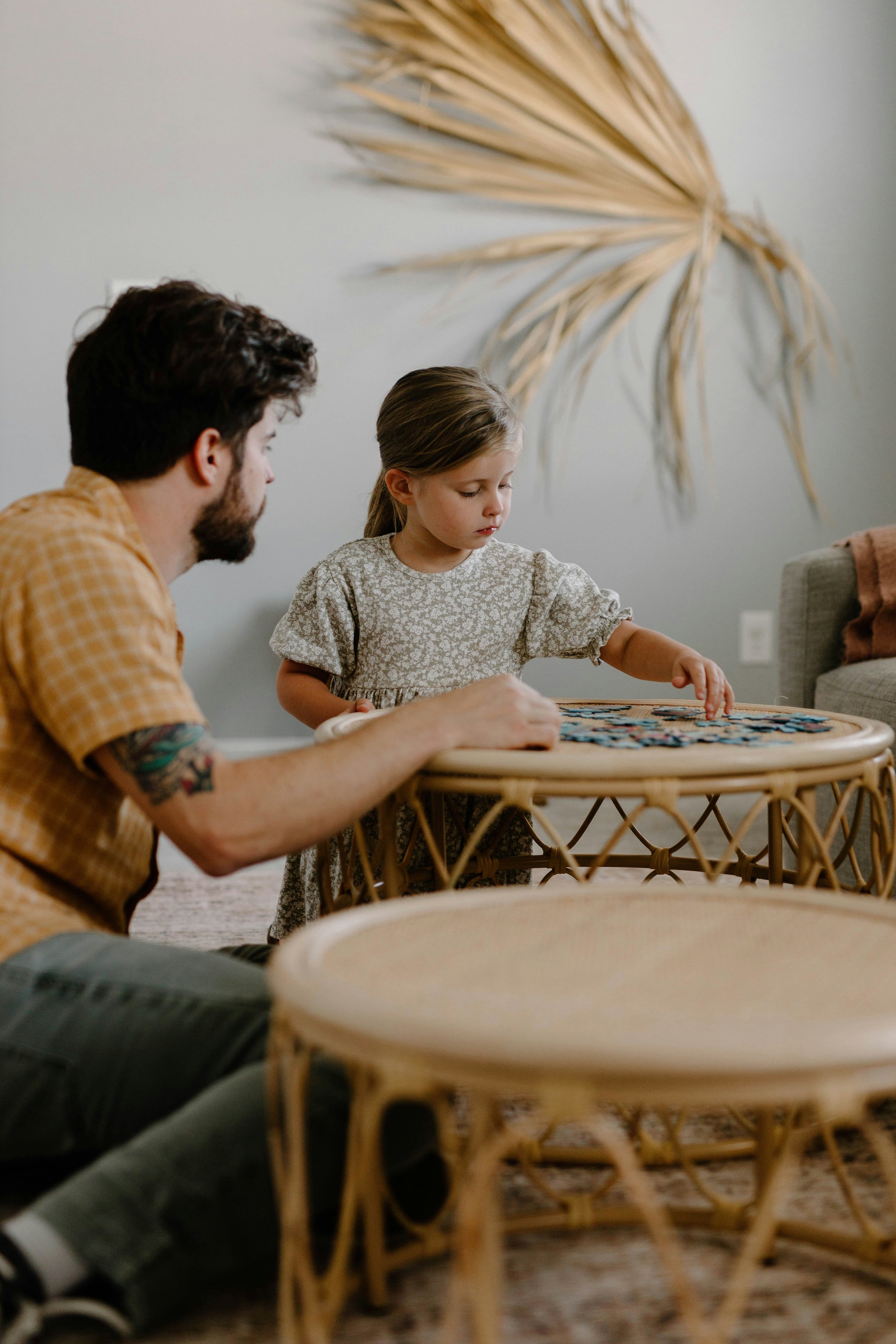Overcoming The Guilt Trap
If you’ve ever gone to bed replaying the day in your head, wondering if you were too harsh, too distracted, or just not enough, you are not alone.
Parental guilt is incredibly common, yet deeply unhelpful when left unchecked.
Despite the growing number of resources and parenting advice available today, many parents still feel like they are falling short.
The truth is, striving for perfection in parenting is not only unsustainable, it’s unnecessary. Psychological research continues to affirm that what children need most is not a flawless parent, but a safe, responsive, and emotionally available one. In fact, “good enough” parenting is not only acceptable, it is optimal.
Understanding the Guilt Trap
A 2023 study published in the Journal of Child & Family Studies found that over 78% of parents report experiencing frequent guilt. This guilt stems from a variety of sources: working long hours, not engaging enough, losing patience, relying on screens, or simply feeling emotionally drained.
From a psychological perspective, guilt often arises when there is a gap between our “ideal parent” self-the kind of parent we aspire to be - and our real, everyday experiences.
The problem arises when this guilt turns into shame. As author and researcher Dr. Brené Brown explains, “Guilt says ‘I did something bad.’ Shame says ‘I am bad.’” The difference matters. Guilt can prompt reflection and change. Chronic guilt or shame, however, undermines a parent’s confidence and connection.
The Science of “Good Enough”
The idea of being a “good enough” parent might sound like lowering the bar, but it’s actually backed by decades of solid psychological research.
The term was first introduced by British psychoanalyst Donald Winnicott back in the mid-20th century. He found that children don’t thrive because their parents are perfect. They thrive because their parents are reliable, loving, and human. In other words, consistently “good enough.” That means showing up, offering care, and being willing to make things right when you mess up, not avoiding mistakes altogether.
This idea has stood the test of time. More recent research, like Dr. Ed Tronick’s famous Still Face Experiment, showed just how important connection and repair really are. In the study, when a parent stopped responding to their baby, even for a short time, the baby quickly became distressed. But once the parent re-engaged and reconnected, the baby settled. What mattered most wasn’t that the parent never “disconnected,” but that they came back.
Attachment science backs this up again and again: what builds a secure bond with your child isn’t perfection, it’s your ability to reconnect after a tough moment. It’s not about never getting it wrong. It’s about how you handle it when you do.
What Healthy Repair Looks Like
In therapy, one of the most powerful shifts for parents comes when they realise that making mistakes is not the issue. The real growth lies in what happens next. Children are remarkably resilient when they experience relational repair after moments of rupture.
Here are a few simple but effective repair strategies:
If you raised your voice: “I was feeling overwhelmed, but it wasn’t okay to speak to you like that. I’m sorry.”
If you overlooked something important to them: “I can see that this mattered to you. I’m sorry I didn’t notice sooner.”
If you reacted sharply when they were seeking connection: “I understand you weren’t trying to upset me. I wish I had responded more gently.”
Repair is not about making grand apologies. It is about recognising our missteps, taking responsibility, and reinforcing the message that the relationship is strong enough to withstand difficult moments.
Moving From Guilt to Growth
For parents who find themselves stuck in spirals of guilt, it can be helpful to pause and consider the following:
Acknowledge the feeling: Label the emotion. “I’m feeling guilty because I care deeply about doing this well.”
Challenge black-and-white thinking: A single moment does not define your parenting. Reflect on the broader pattern.
Practice self-compassion: Ask yourself what you would say to a close friend in the same situation. Then say that to yourself.
Focus on presence, not perfection: The quality of your presence, not the quantity of your performance, is what leaves the deepest impact.
Return to your values: Instead of chasing external standards, ask what matters most to you and your family. Let that guide your next steps.
As psychologist Dr. Becky Kennedy states, “Repair is the heart of secure attachment. It’s not about never messing up. It’s about showing our kids that relationships can handle rupture and come back stronger.”
If you’ve been feeling like you’re failing, this is an invitation to reframe that belief. The very fact that you are reflecting, reading, and caring enough to grow speaks volumes. You are not failing, you are engaging. And engagement, not perfection, is the hallmark of effective, connected parenting.
I’ve written this before, but I’ll write it again. Your children do not need a perfect parent. They need a present one! One who models humility, repair, love, and growth. Every time you return after a misstep, you are building a stronger, more resilient connection with your child.
Good enough really is enough, and often, it’s exactly what your child needs most.
Sabrina is a registered psychologist with over 15 years of experience working with families, children, and adolescents.
Based in Brisbane, Queensland, Sabrina offers face-to-face appointments or Telehealth.
To make an appointment click here or call M1 Psychology Loganholme on (07) 3067 9129.
Disclaimer: The information provided on this site is for psycho-educational purposes only and is not meant as a substitute for therapy, counselling, or medical care. If you require personal mental health support, please consult a professional. In case of a crisis, contact emergency services immediately.





















